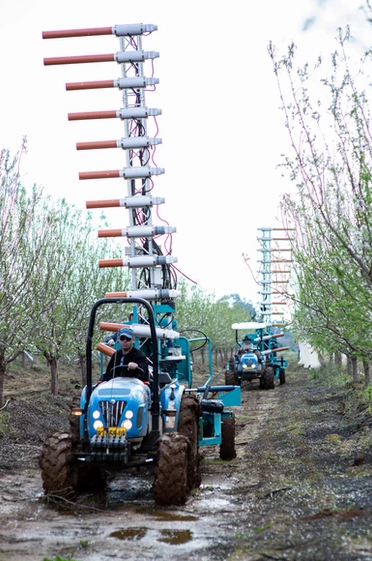Israeli ag company introduces artificial pollination technology

The Israeli ag startup Edete Precision Technologies for Agriculture is rolling out its artificial pollination technology in Australia's almond markets later this year.
The new technology is set to undergo large-scale commercial testing in the state of Victoria across almond orchards owned by one of the country's largest almond producers, which was unnamed in the press release. Artificial pollination would essentially replace the natural pollination of bees, which is the driving force of plant and crop growing.
The company said their tests in Israel showed significantly increased yields using robotic pollination and mechanical pollen harvesting. Edete also at some point plans to move their tech to California, the US's largest region of almond growers. The tech can also pollinate pistachios, apples, cherries, pears, plums and other crops.
"Australia is the second largest almond producer in the world and continues to increase acreage under cultivation in a way that makes the country a key proving ground for us," said Keren Mimran, co-founder of Edete and vice president of business development and marketing.

Edete said they are intensively searching for a solution to the decline of natural pollination that is threatening farmers' ability to keep up with food demand and insecurity. Despite spending hundreds of millions on beehives to jumpstart pollination, farmers are finding more challenges to stay profitable. The release warned some foods may become scarce, and others expensive, without a viable solution soon.
The artificial pollination system can work 24 hours a day in any temperature. It collects the flowers, separates pollen from the anthers of the flower (which produce pollen), allowing storage of pure pollen for up to a year. A robotic system then pollinates the trees using the gathered pollen.